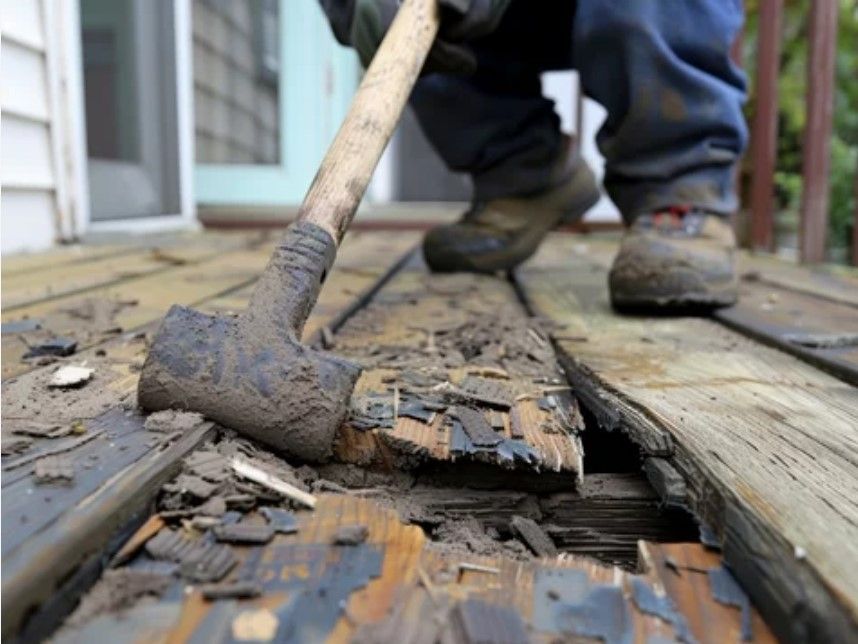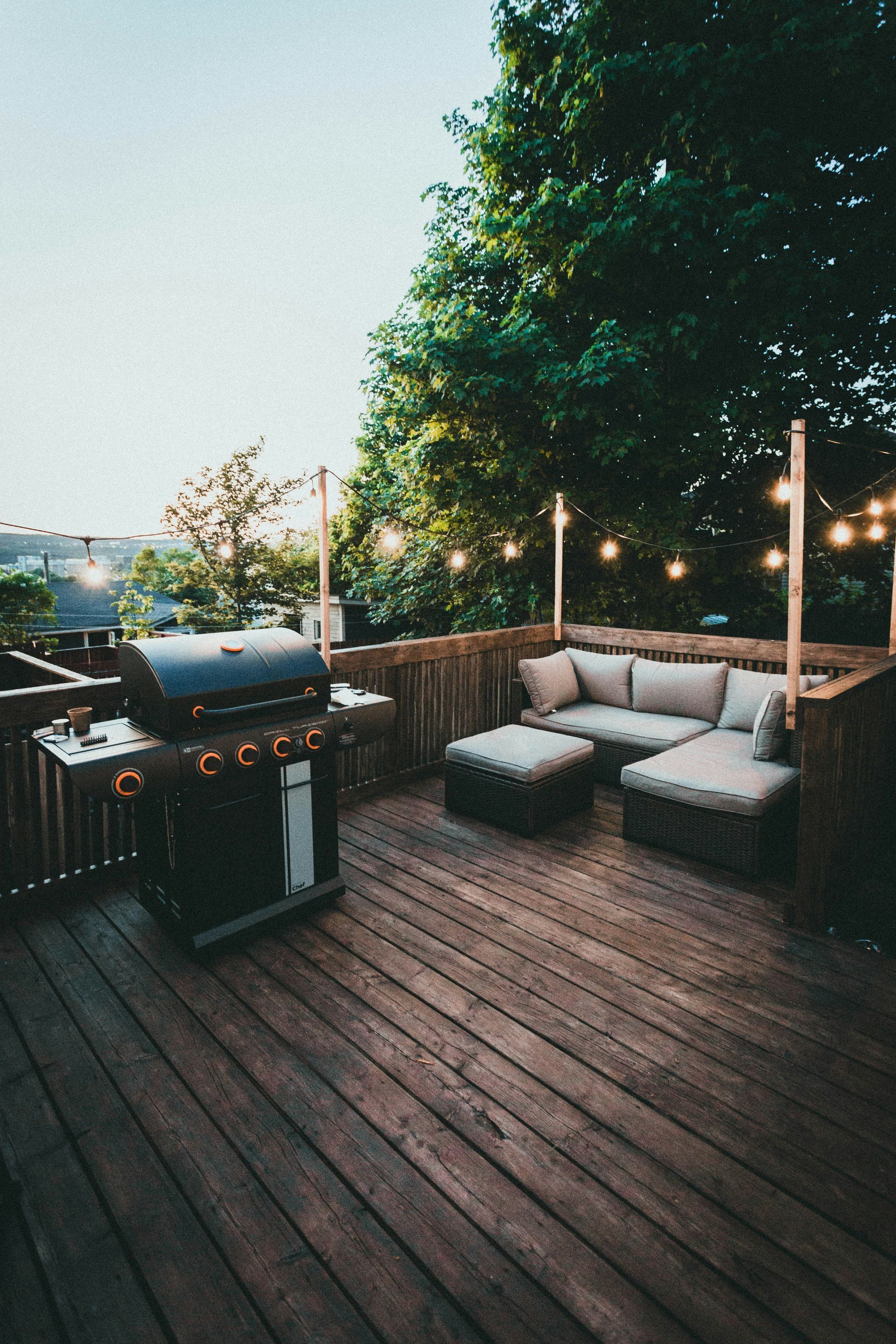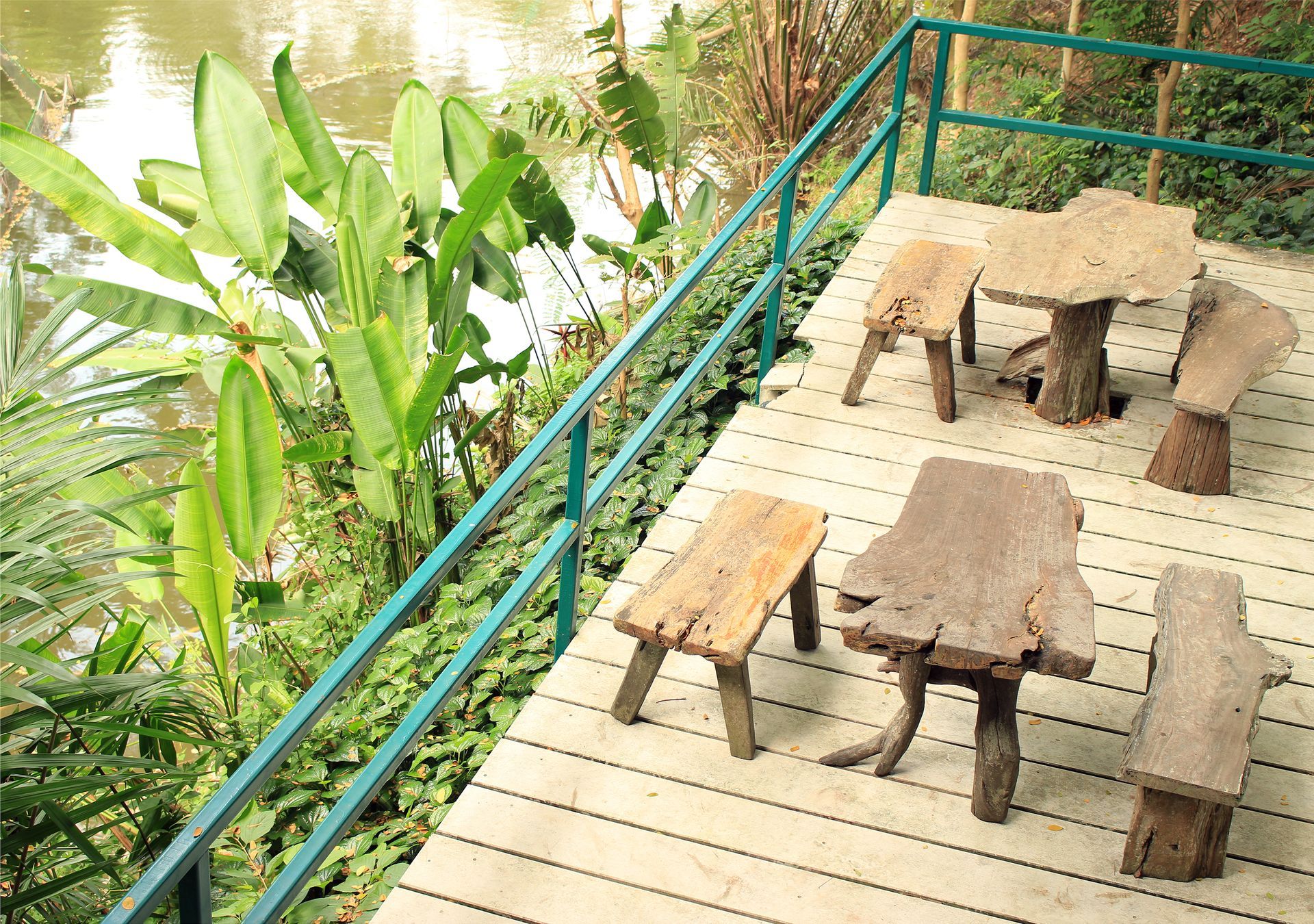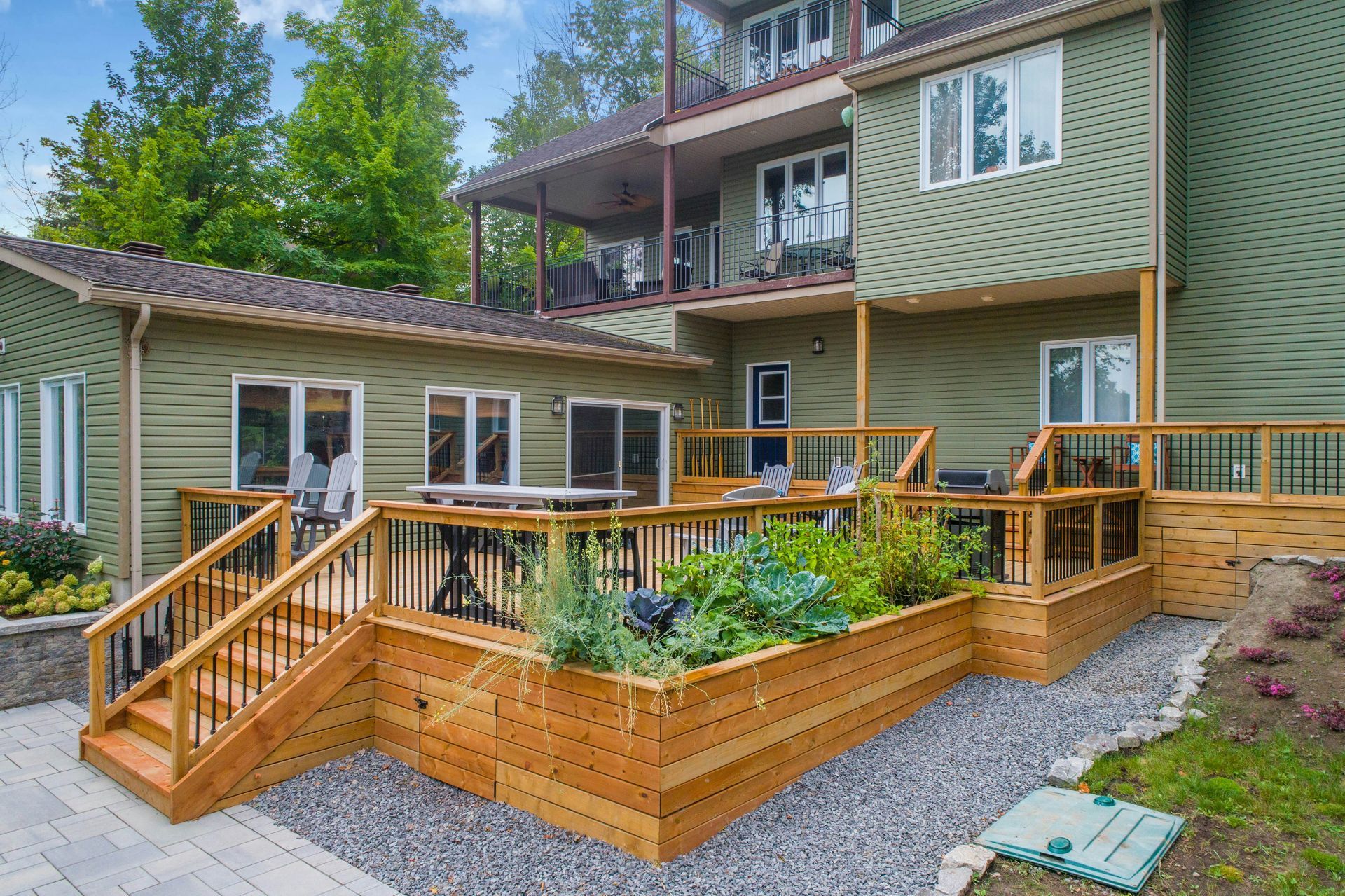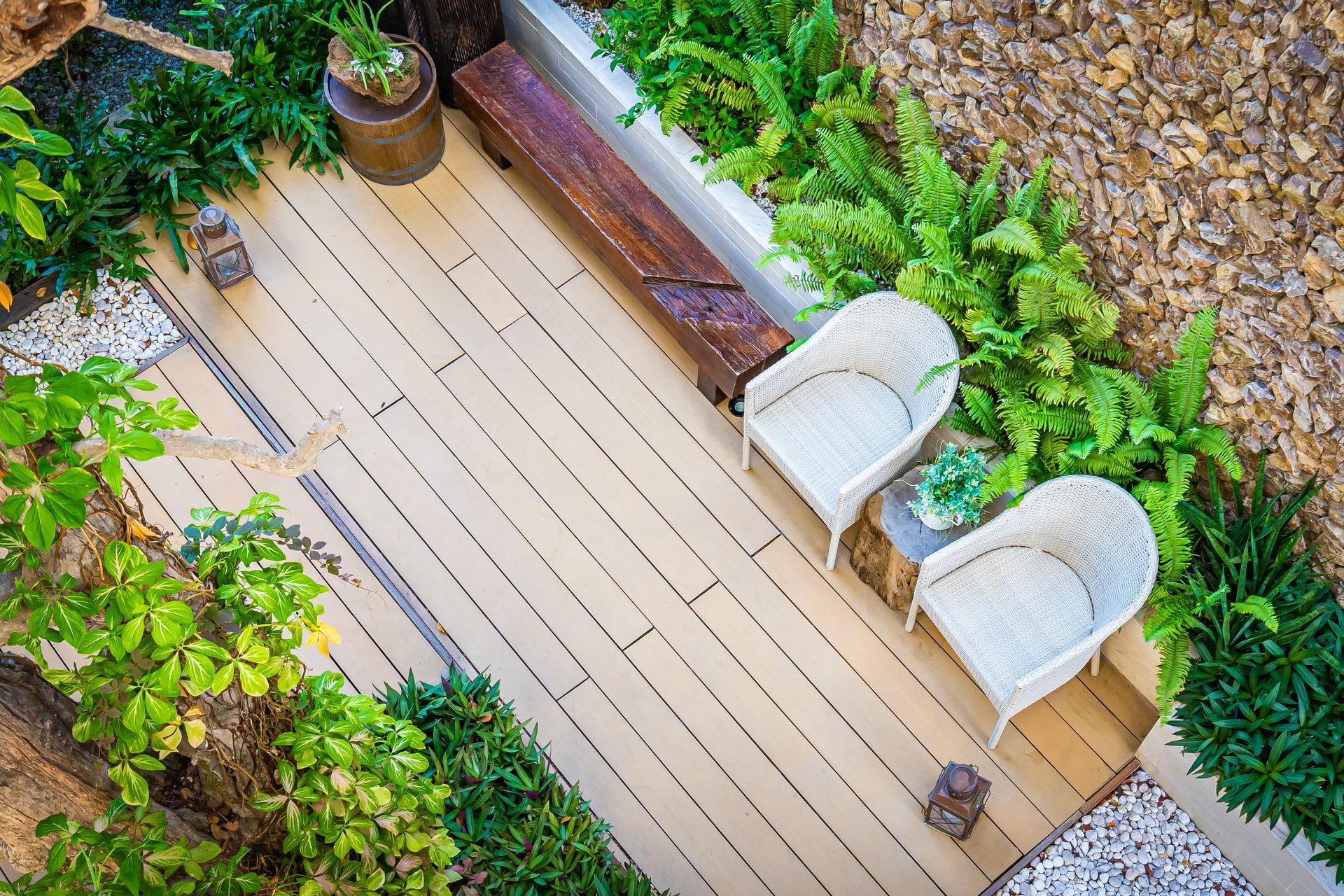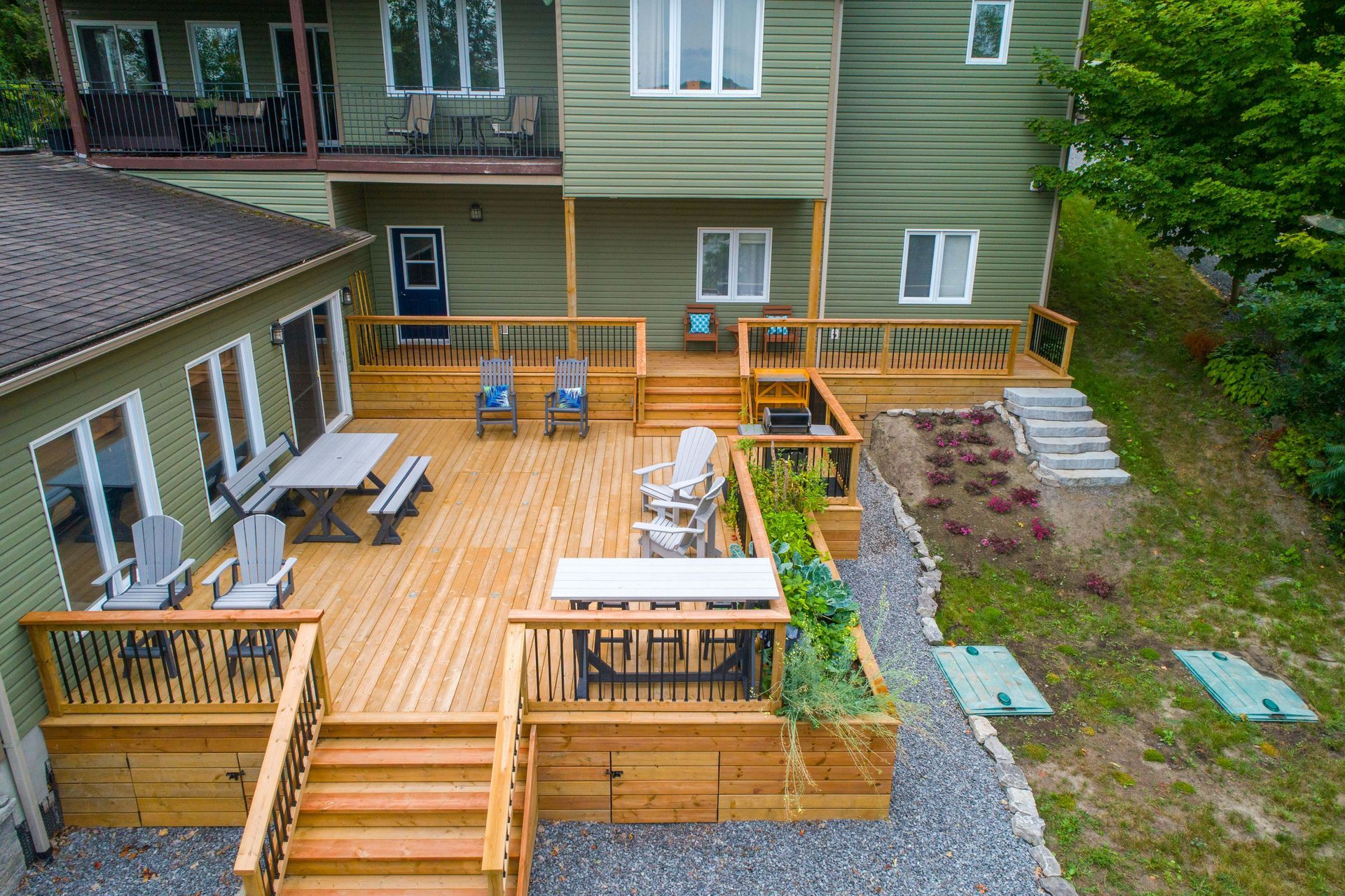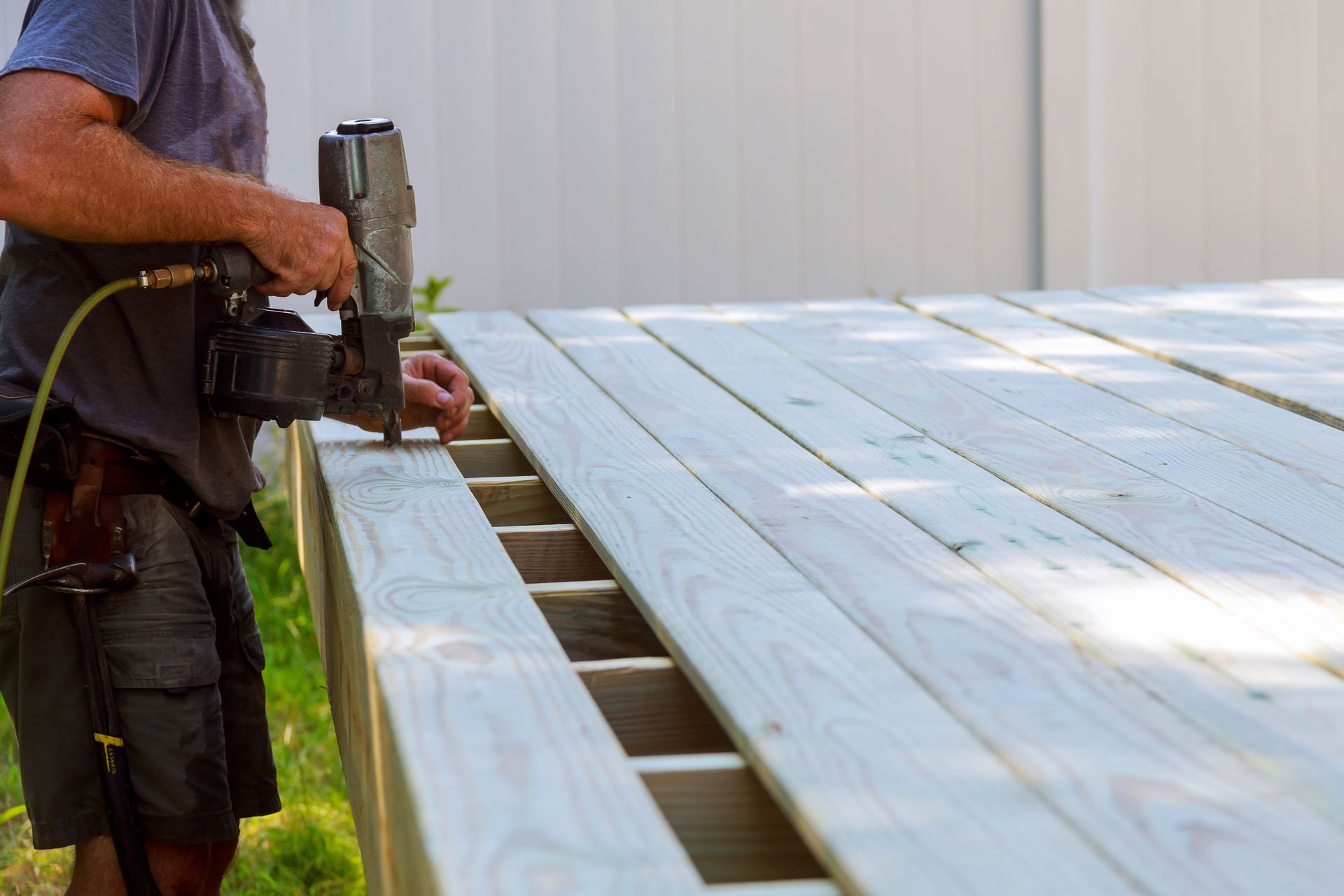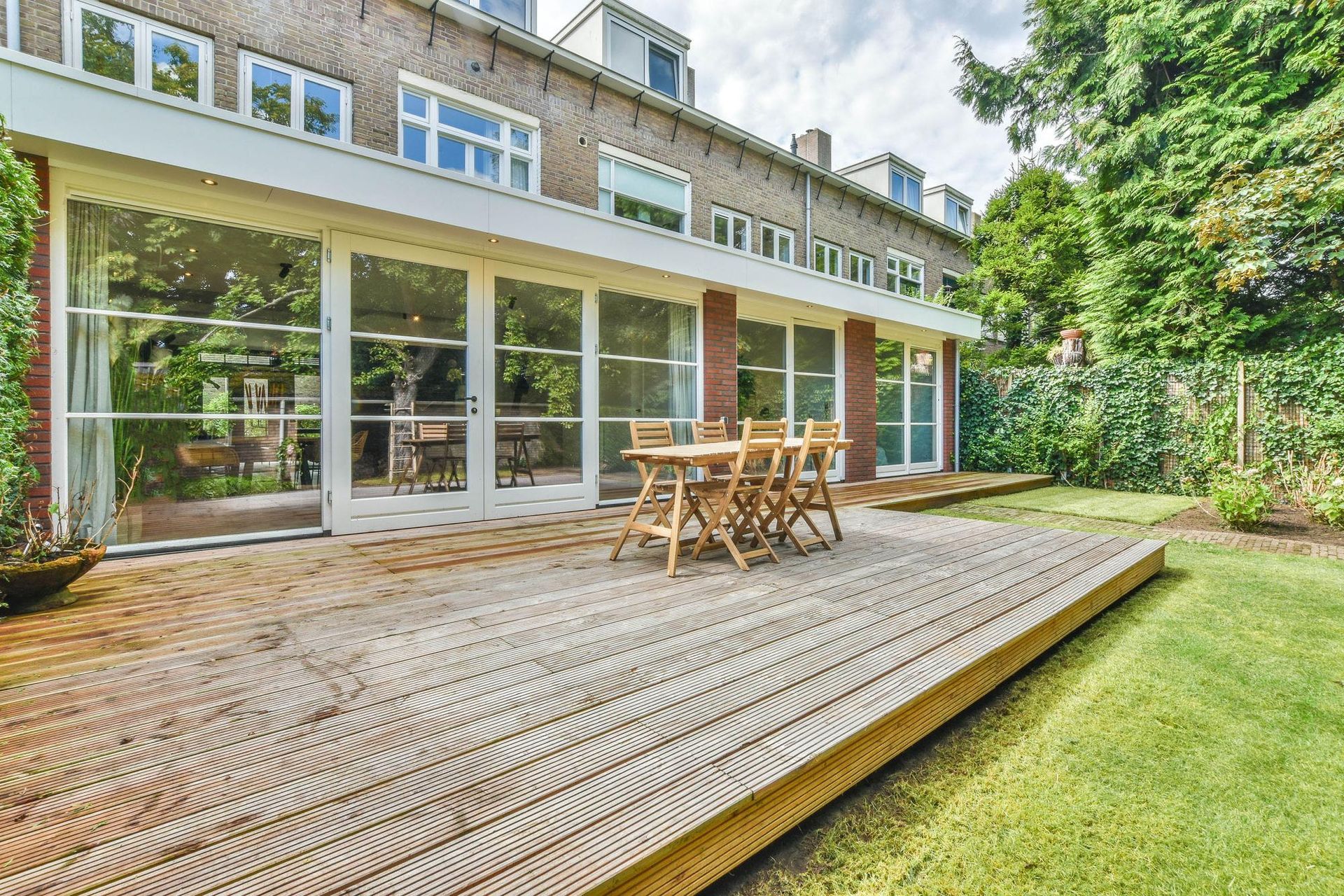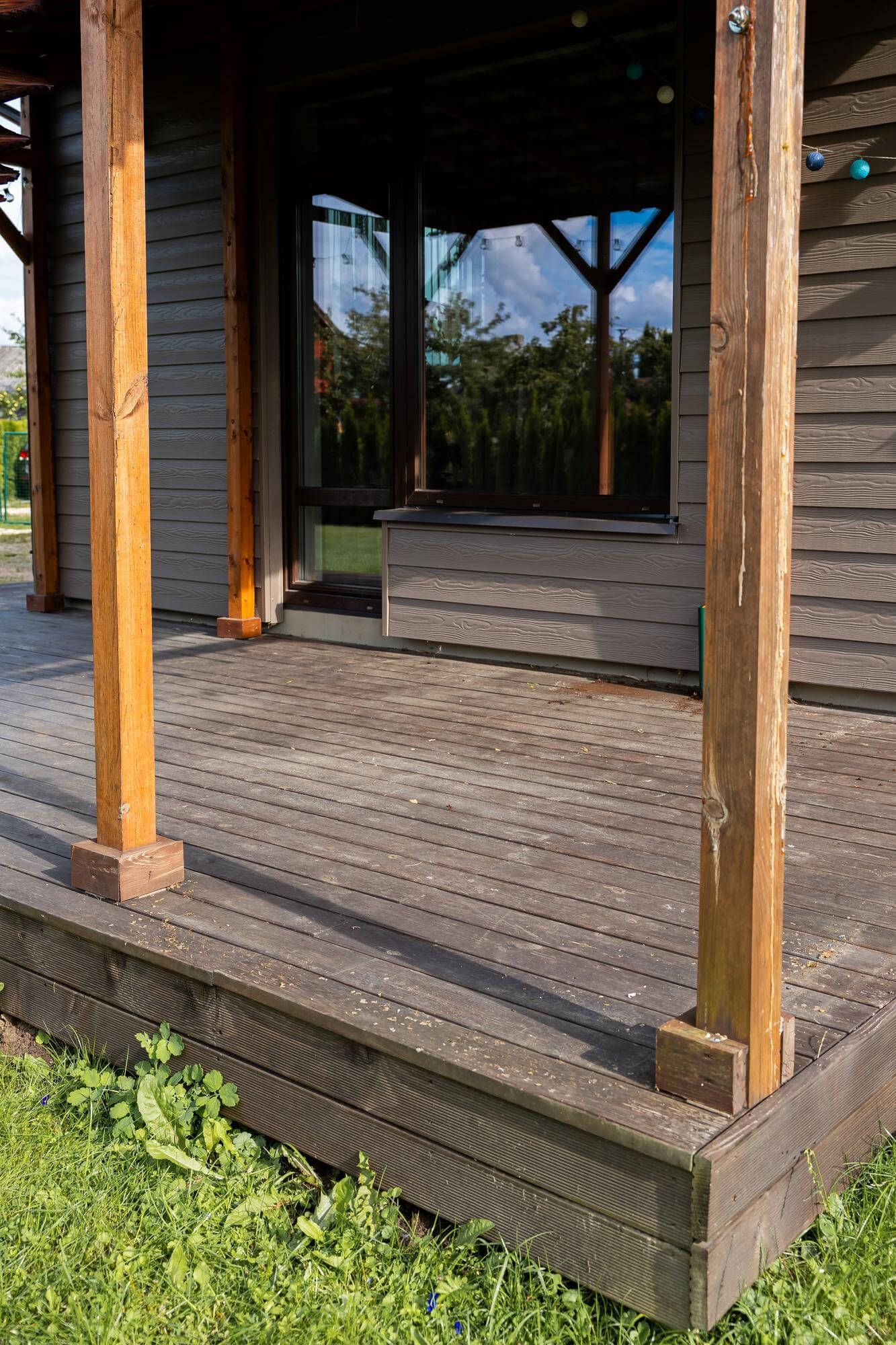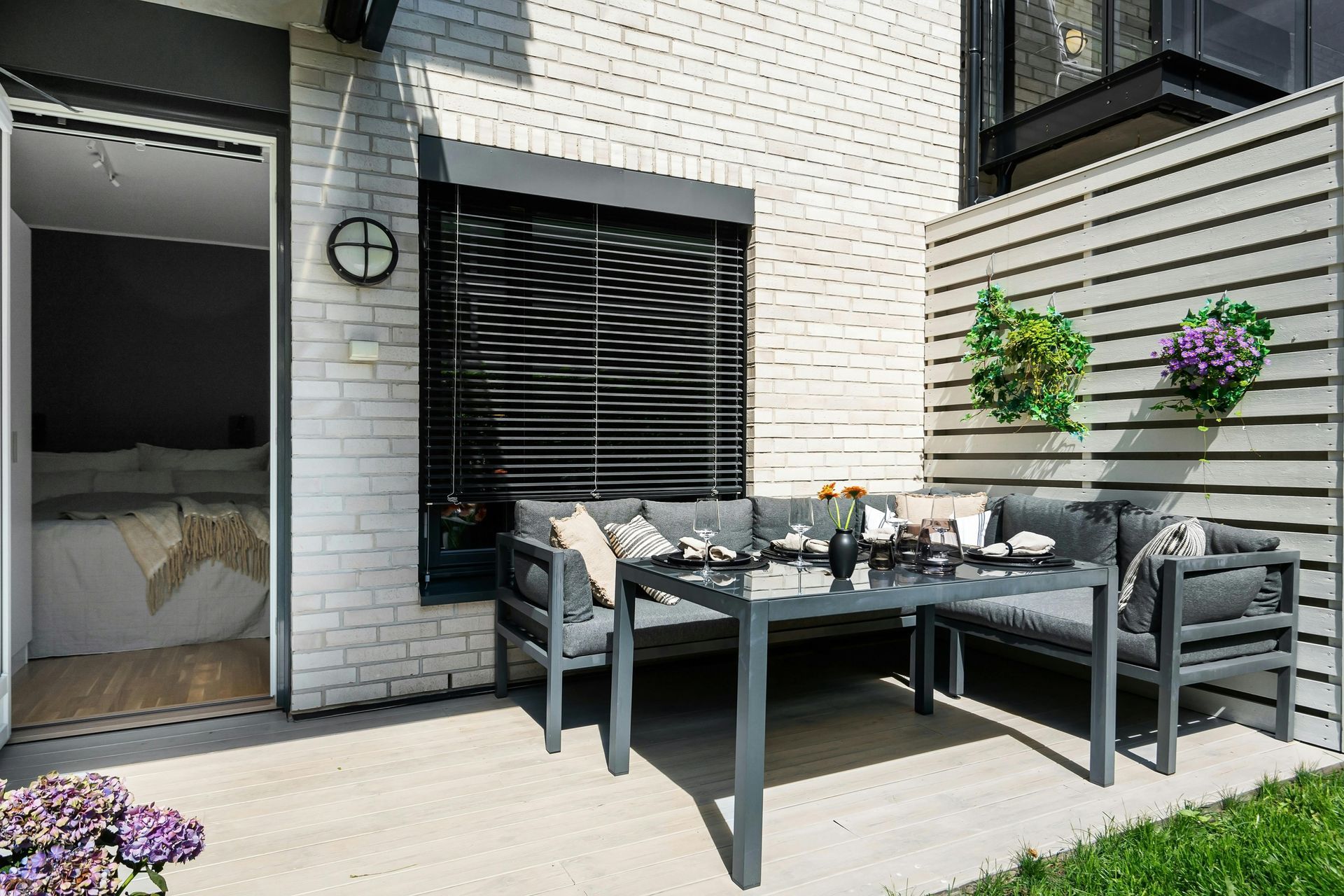Blog
Deck Foundation: Ensuring a Sturdy and Durable Structure for Your Home
Building a deck is a great way to expand your outdoor living space and add value to your home. A well-constructed deck can serve as the perfect setting for family gatherings, barbecues, or simply enjoying the outdoors. However, the key to a successful and long-lasting deck lies in its foundation. Without a strong, durable foundation, your deck may face structural issues, leading to costly repairs and safety concerns down the line.
At
Hunt Home Remodeling, based in Bennington, NE, we understand that a solid deck foundation is the cornerstone of any deck project. With years of experience and a commitment to quality craftsmanship, we ensure that every deck we build stands the test of time. In this blog post, we'll cover the importance of a strong deck foundation, the materials and methods used, and how to ensure your deck remains safe and sturdy for years to come.
Why a Strong Deck Foundation is Crucial
The foundation of any deck is responsible for supporting the weight of the structure, the people who use it, and the furnishings placed on it. If the foundation is not properly designed or constructed, the deck could become unstable, sag, or even collapse. Here are a few key reasons why a strong deck foundation is essential:
a. Structural Stability
A well-built foundation ensures that your deck remains level and stable, even when exposed to heavy loads or environmental factors such as wind, rain, and shifting soil. Without a sturdy foundation, your deck may settle unevenly, causing an unbalanced surface and leading to potential hazards.
b. Longevity
A deck with a solid foundation will last much longer than one with a weak or poorly constructed base. Over time, moisture, soil movement, and wear can affect the deck's structural integrity. However, if the foundation is built to withstand these elements, your deck will remain in good condition for years to come.
c. Safety
A poorly built deck foundation can lead to dangerous conditions such as sagging, shifting, or even complete collapse. Ensuring that your deck is constructed on a solid foundation reduces the risk of accidents and injuries.
d. Investment Protection
Building a deck is a significant investment, and a poorly constructed foundation can lead to costly repairs or even the need for a complete rebuild. By investing in a strong foundation from the start, you're protecting your financial investment and ensuring that your deck remains a valuable asset to your home
Types of Deck Foundations
When it comes to deck foundations, there are several types to choose from, each with its own advantages and considerations. The right choice depends on factors such as the soil conditions, deck size, and local building codes. At Hunt Home Remodeling, we assess each project individually to determine the best foundation type for your specific needs. Below are some common types of deck foundations:
a. Concrete Footings
Concrete footings are widely used as deck foundations. These are typically placed below the frost line to prevent shifting due to freezing and thawing cycles. Concrete footings provide a stable base that distributes the weight of the deck evenly across the soil. They're ideal for decks of all sizes and can be customized to accommodate different soil conditions.
b. Piers and Posts
Piers and posts are another popular foundation option. This method involves placing concrete piers or wooden posts into the ground to support the deck structure. Piers are often used in areas with poor soil drainage, as they can be elevated above the ground to prevent moisture-related damage. Posts, on the other hand, are commonly used in conjunction with concrete footings to provide additional support.
c. Helical Piles
Helical piles are a more advanced foundation option that involves driving steel screw-like posts into the ground. These piles offer excellent support and are particularly useful in areas with unstable or shifting soil. Helical piles are also less invasive and quicker to install compared to traditional concrete footings.
d. Ground-Level Foundations
For decks that are closer to the ground, a ground-level foundation may be appropriate. This involves using concrete blocks or gravel as a base, rather than digging deep footings. While this option may not be as durable as others, it can still provide sufficient support for smaller, low-lying decks.
How Soil Conditions Affect Deck Foundations
The type of soil in your yard plays a significant role in determining the best foundation for your deck. Soil can vary greatly in terms of composition, drainage, and stability, and these factors can impact the long-term durability of your deck foundation.
a. Clay Soil
Clay soil is dense and retains moisture, which can lead to swelling and shifting during freeze-thaw cycles. If your deck is built on clay soil, it's essential to use deep concrete footings or helical piles to prevent movement and ensure stability.
b. Sandy Soil
Sandy soil drains well but may not provide enough support for a heavy deck. In areas with sandy soil, piers, posts, or helical piles may be necessary to anchor the deck securely.
c. Loamy Soil
Loamy soil is a well-balanced mixture of sand, silt, and clay, making it ideal for deck foundations. Concrete footings or ground-level foundations work well in loamy soil, as it provides sufficient drainage and support.
d. Rocky Soil
Rocky soil can be challenging to work with, as it may require specialized equipment to dig deep enough for footings. However, rocky soil generally provides excellent stability, making it an ideal base for deck foundations.
Best Practices for Building a Sturdy Deck Foundation
It's essential to follow guidelines to guarantee the longevity of your deck's foundation. At Hunt Home Remodeling, we adhere to the highest standards of craftsmanship and construction techniques to ensure that every deck we build is safe, durable, and structurally sound.
a. Proper Footing Depth
To ensure a strong deck foundation, the footings must be set at a sufficient depth to prevent frost damage. In colder climates, footings should be placed below the frost line, which can vary depending on your location. This prevents the ground from moving due to freezing and thawing, which can cause the deck to become uneven.
b. Use of High-Quality Materials
Using strong materials like pressure-treated lumber and concrete ensures a long-lasting deck foundation. Pressure-treated wood is resistant to rot, moisture, and pests, making it an ideal choice for outdoor structures. Similarly, using high-strength concrete ensures that your footings can withstand heavy loads and environmental stress.
c. Proper Drainage
Moisture can significantly damage a deck foundation, leading to wood rot and structural weakness. Proper drainage around the foundation is essential to prevent water accumulation and damage. Grading the soil away from the deck and installing gravel or drainage pipes can help direct water away from the foundation.
d. Regular Maintenance
Even a strong foundation needs regular care. Inspecting the deck for damage and making repairs, along with cleaning and sealing, can help prevent moisture damage and prolong the deck's lifespan.
Why Choose Hunt Home Remodeling for Your Deck Project in Bennington, NE?
At Hunt Home Remodeling, we specialize in building high-quality decks that are both aesthetically pleasing and long-lasting. Our commitment to excellent workmanship and customer satisfaction sets us apart. Our team works closely with clients to design and construct custom decks that meet their needs and complement their homes.
We prioritize quality materials and industry standards to build the strongest and most durable deck foundations. Whether you're looking to build a new deck from scratch or repair an existing one, our skilled team is here to help.
Give us a call today at
(402) 885-0738 to discuss your deck project and schedule a consultation. Let Hunt Home Remodeling transform your outdoor space into the perfect retreat for you and your family!
FAQs
How deep should deck footings be?
Deck footings should be buried below the frost line to prevent them from being pushed up by freezing and thawing ground. The frost line in Nebraska is usually between 36 and 48 inches deep.
Can I build a deck without a foundation?
No, a deck needs a foundation to support its weight and ensure stability. Building a deck without a proper foundation can compromise its structural integrity and pose safety hazards.
How much time is involved in building a deck foundation?
The duration of deck foundation construction varies depending on the deck's size and the chosen foundation type. It typically takes between one and several days.
What materials are best for deck foundations?
Known for their durability and resistance to moisture and pests, concrete footings and pressure-treated wood are commonly used in deck foundations.
How do I maintain my deck foundation?
Regularly inspect your deck foundation for signs of wear, such as cracks in the concrete or rotting wood. Prevent water buildup around the deck and promptly repair any issues to prevent additional damage.
